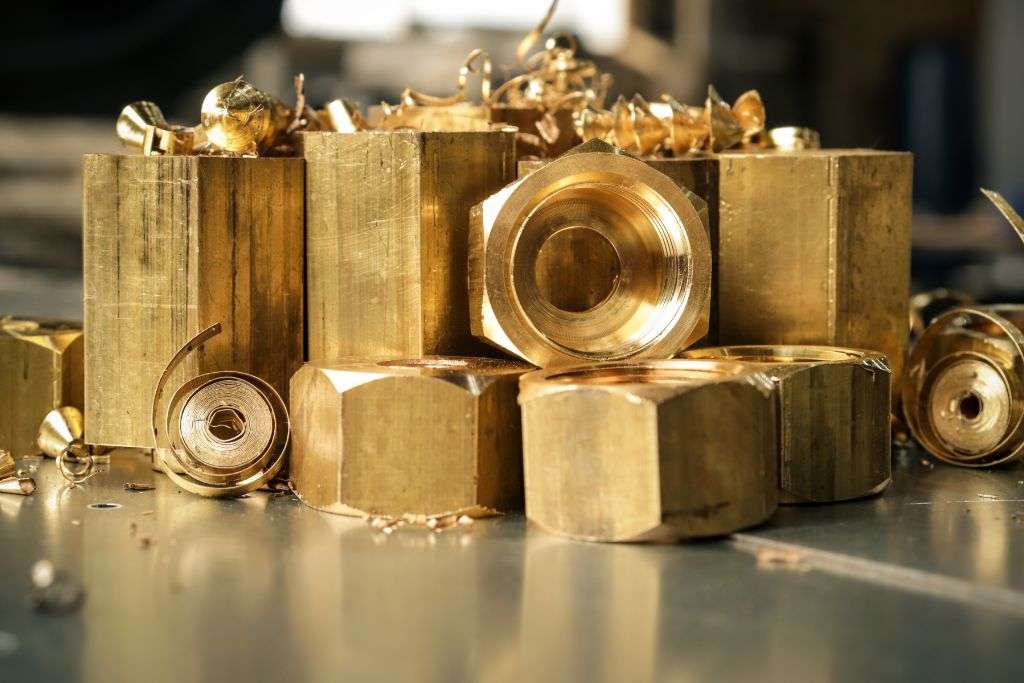
Aug 11,2023
When it comes to OEM manufacturing, finding cost-effective solutions without compromising on quality is a top priority for businesses worldwide. Brass parts have emerged as a game-changer in this regard, offering a plethora of advantages that lead to significant cost savings.
In this blog post, we delve into the world of brass parts, exploring how they contribute to driving cost-effective solutions in OEM manufacturing. From the capabilities of China brass parts manufacturers to wholesale CNC brass parts factory, we will cover it all, ensuring that your manufacturing endeavors are primed for success!
Brass, a metal alloy made of copper and zinc, holds a prominent place in the manufacturing industry.
Its unique properties make it an excellent choice for crafting various parts, and its cost-effectiveness is a standout feature that makes it highly sought after. Let's dive into the key aspects that make brass parts a cost-effective marvel:
The inherent versatility of brass allows it to be used across a wide range of applications, making it an ideal choice for OEM manufacturing.
Whether it's electrical components, plumbing fixtures, or automotive parts, brass can be adapted to suit specific needs. With the ability to be molded into intricate shapes, brass parts can be customized to meet even the most complex design requirements.
Choosing an experienced OEM brass parts processor is crucial to reaping the full benefits of this metal alloy. Skilled manufacturers leverage advanced technologies and techniques to efficiently produce brass parts at scale, reducing production costs while maintaining high-quality standards.
In recent years, China has emerged as a dominant player in the global manufacturing landscape. When it comes to brass parts, Chinese manufacturers offer a distinct advantage that is hard to overlook.
Let's explore the reasons why partnering with a China brass parts manufacturer can be a game-changer for your business:
China's cost-competitiveness in manufacturing is well-known, and the brass parts sector is no exception.
By leveraging the country's skilled labor force and advanced infrastructure, China brass parts manufacturers can offer highly competitive prices without compromising on quality.
Contrary to misconceptions, China's manufacturing capabilities have significantly improved over the years. Reputed brass parts manufacturers in China adhere to international quality standards and invest in cutting-edge technology, ensuring that the final products meet stringent quality requirements.
Wholesale CNC brass parts factories in China can efficiently handle bulk production orders, enabling businesses to capitalize on economies of scale.
By streamlining production processes, these factories can keep costs low, benefiting their clients with cost-effective solutions.
Partnering with an OEM brass manufacturer can be a game-changer for your business, driving down costs and enhancing overall efficiency. Here's why you should consider working with an OEM brass manufacturer for your OEM needs:
OEM brass manufacturers are equipped to handle large production volumes, enabling them to spread fixed costs over a higher number of units. This leads to significant cost savings for their clients, making it a cost-effective option for OEM manufacturing.
By outsourcing brass part manufacturing to an OEM specialist, companies can focus on their core competencies and reduce overhead costs associated with in-house production. This delegation of tasks ensures optimal resource allocation and boosts overall efficiency.
Embracing cost-effective solutions doesn't end with finding the right brass parts manufacturer. Seeking guidance from brass machinery experts can significantly impact your manufacturing processes and overall cost structure. Here's why brass machinery contact is essential for your business:
Brass machinery experts have an in-depth understanding of manufacturing processes and can recommend improvements to streamline production. This optimization reduces waste, increases output, and ultimately saves costs.
No two manufacturing setups are alike. Brass machinery contact allows experts to understand your specific requirements and suggest tailor-made solutions that align with your business objectives, resulting in further cost efficiencies.
Brass parts have proven to be a cost-effective solution for OEM manufacturing, offering versatility, customizability, and superior cost competitiveness. Partnering with a China brass parts manufacturer and an OEM brass specialist can lead to substantial cost savings while maintaining high-quality standards.
By seeking guidance from brass machinery experts, businesses can further optimize their manufacturing processes, ultimately driving overall efficiency and success. Embrace the power of brass parts in your manufacturing journey and unlock the door to cost-effective solutions today!
A1: Yes, brass parts are highly durable and resistant to corrosion, making them ideal for various industrial applications.
A2: Absolutely! China brass parts manufacturers offer customization options to meet specific design requirements.
A3: Brass machinery experts can identify inefficiencies in your manufacturing processes and suggest improvements to cut down costs.